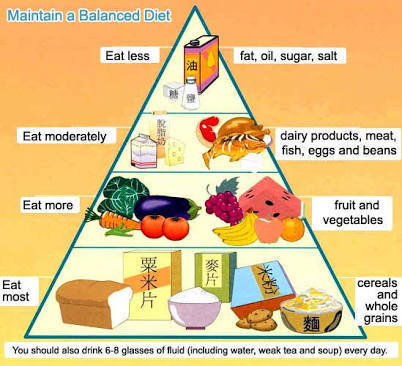
There are many emotions that can arise from a diagnosis of cancer. Some people may feel numb, while others may be sad or worried about the future. All people experience different emotions. They are all normal. It is important to handle them in a healthy way. A support network of family and friends can help you deal with your cancer diagnosis.
Aside from the physical changes your body will go through, you may also experience a loss of independence. For example, you may have to take time off work or have a change in your lifestyle. This could leave you feeling isolated. You might also have to worry about your finances.
You may have additional questions. The medical team can help you understand your diagnosis. It's a good idea for you to have a conversation with a trusted friend about the best options. You can ask questions you have about your treatment, how it will affect your life, and your goals for your cancer. Your healthcare team should be able provide guidance and advice about how to respond to these questions.

To talk about your cancer with someone, you can either call a support group on the telephone or see a psychologist. You should try to remain open and honest when talking with your health care team, and never hesitate to tell them what you need. You should listen to their feedback and not be afraid to ask them for help if you don't get the answers.
It is important that you keep yourself busy during your treatment. Try to find time for hobbies, exercise, or other leisure activities. Being active can help reduce stress and improve your mental health.
Sharing your feelings with others is one of the most important ways to cope with cancer. While it might be uncomfortable, it's important to be open with your loved ones and friends. You can share your worries, fears, or any other emotion that is relevant. You can keep track by keeping a journal.
Even though your loved ones may not be keen to hear about your battle with cancer at the outset, it's often a good idea to let them know what is happening. You may find that you can share your feelings with them more openly as time goes by.

Dealing with others' emotions is one of the most difficult aspects of cancer treatment. They can be confusing and difficult to understand. It can be difficult to find the right approach. Remember that your loved ones are doing the best they can, and that you should learn to work with them.
Don't be afraid saying no to things that you don’t want to do. Sometimes it can be difficult to say no to friends or a doctor's prescription. Try to be flexible as you adjust to your new routine.
FAQ
How can weight change with age?
How can you tell if your bodyweight has changed?
When the body has less fat than its muscle mass, it is called weight loss. This means that calories must be consumed at a rate greater than energy. A decreased level of activity is the main cause of weight loss. Other factors include stress, pregnancy and hormonal imbalances. When more fat is consumed than muscle mass, weight gain occurs. This happens when people consume more calories than they burn during the day. Overeating, increased physical activity and hormonal changes are all common reasons.
Our bodies lose weight because we eat fewer calories than we burn. When we exercise regularly, we increase our metabolism rate which burns off more calories throughout the day. This does not necessarily mean that we will get thinner. All that matters is whether we are losing or gaining weight. If we are burning more calories than what we eat, then we will lose weight. However, if you consume more calories than you burn, you'll end up storing them for fat.
As we get older, we tend not to be as mobile and move as fast. We also tend not to eat as much food as we used to when we were younger. This is why we tend to gain weight. We also tend to look larger because we have more muscle.
Without weighing yourself each week, there is no way to know how much weight you have lost. There are many different ways to measure your weight. There are several ways to check your waist size. Some prefer to use bathroom scales, while others prefer tape measures.
Track your progress by measuring your waistline and weighing yourself every week. You can also take photographs of yourself every few years to track how far your progress has been.
Online measurements of your height, weight and body mass can help you determine how much. For example, if your height is 5'10", and your weight is 180 pounds, then you'd probably be 180 pounds.
What is the problem in BMI?
BMI stands to Body Mass Index. This refers to the measurement of body weight based on height. The following formula is used to calculate BMI:
The weight of a kilogram divided by its squared height in meters.
The result can be expressed as a number, ranging from 0 through 25. A score of 18.5 indicates that you are overweight and a score of 23 indicates that you are obese.
A person with a body mass index of 22 and a weight of 100 kg and a height 1.75m will have a BMI.
How can I reduce my blood pressure
It is important to first understand what high blood pressure is. Then you need to take steps to reduce this cause. This could include eating less salt, losing weight if necessary, taking medication, etc.
It is important to ensure that you get enough exercise. If you don't have time for regular exercise, then try walking as often as possible.
A gym membership is a good idea if you don't like how much exercise your doing. You'll probably want to join a gym where there are other people who share your goals. It is easier to adhere to a fitness routine when someone else will be there with you.
What is the difference between calories and kilocalories?
Calories are units that measure the energy content of food. Calories are the unit of measurement. One calorie equals one degree Celsius of energy to heat 1 gram of water.
Kilocalories can also be used to refer to calories. Kilocalories are measured as a thousandth of a calorie. 1000 calories are equal to one kilocalorie.
Is cold a sign of a weak immune response?
Being cold gives you a weaker immune system because when you are cold, your body produces less white blood cells which fight infections. But, cold makes you feel better. Your brain releases endorphins that reduce pain.
What can I do to boost my immune system?
The human body consists of trillions of cells. Each cell works together to create organs and tissues that fulfill specific functions. One cell is replaced by another when it dies. Chemical signals, called hormones, allow cells to communicate with each other. Hormones regulate every bodily process, from growth and development to metabolism as well as immunity.
Hormones are chemicals secreted by glands throughout the body. They travel through blood stream and act as messengers that control the function of our bodies. Some hormones are made internally, while some are externally produced.
Hormone production begins when a hormone-producing gland releases its contents into the bloodstream. Once hormones become active, they move throughout the body until reaching their target organ. Sometimes hormones stay active for only a short time. Other hormones remain active longer and still have an influence on the body's functioning long after they leave bloodstream.
Some hormones can only be produced in large quantities. Others are only produced in very small quantities.
Some hormones only are produced during certain periods of life. For instance, estrogen is produced during puberty, pregnancy, menopause, and old age. Women can get estrogen to build breasts, prevent osteoporosis, and keep their bones healthy. Estrogen promotes hair growth, and skin stays soft and smooth.
Statistics
- WHO recommends reducing saturated fats to less than 10% of total energy intake; reducing trans-fats to less than 1% of total energy intake; and replacing both saturated fats and trans-fats to unsaturated fats. (who.int)
- This article received 11 testimonials and 86% of readers who voted found it helpful, earning it our reader-approved status. (wikihow.com)
- Extra virgin olive oil may benefit heart health, as people who consume it have a lower risk for dying from heart attacks and strokes according to some evidence (57Trusted Source (healthline.com)
- The Dietary Guidelines for Americans recommend keeping added sugar intake below 10% of your daily calorie intake, while the World Health Organization recommends slashing added sugars to 5% or less of your daily calories for optimal health (59Trusted (healthline.com)
External Links
How To
What does the word "vitamin" mean?
Vitamins are organic substances found naturally in food. Vitamins allow us to absorb nutrients from food. Vitamins are not made by the body, so they must be obtained through food.
There are two types: water-soluble and fat-soluble vitamins. Water soluble vitamins dissolve easily in water. You can find vitamin C,B1 or thiamine, B2 or riboflavin and B3 or niacin. B6 is pyridoxine. Folic acid, biotin and pantothenic are some examples. Fat-soluble vitamins are stored within the liver and in fatty tissue. Examples include vitamin D, E, K, A, and beta carotene.
Vitamins are classified according their biological activity. There are eight major groups of vitamins:
-
A - Vital for healthy growth.
-
C - vital for nerve function and energy generation
-
D - Essential for healthy teeth and bones.
-
E is needed for good reproduction and vision.
-
K - Essential for healthy muscles and nerves.
-
P - essential for strong bones, teeth and tendons
-
Q - aids in digestion of iron and iron absorption
-
R – Required for making red blood vessels.
The recommended daily allowance for vitamins (RDA) varies according to age, gender, or physical condition. The U.S. Food and Drug Administration (FDA) sets the RDA values.
For adults 19 years and over, the RDA vitamin A intake is 400mg/day. However, pregnant women need 600 micrograms per day because it is important for fetal development. Children ages 1-8 require 900 micrograms per day. Children under 1 year old require 700 micrograms daily, while infants over one year old need 500 micrograms every day. This decreases between 9 and 12 months.
Children between the ages of 1-18 need 800 micrograms per daily for obesity, while those overweight require 1000 micrograms. To meet their nutritional needs, children underweight and obese need 1200micrograms.
Children between 4-8 years of age who have been diagnosed by anemia must consume 2200 micrograms daily of vitamin C.
2000 micrograms per person is necessary for general health. Due to their increased nutrient needs, pregnant and breastfeeding women need 3000 micrograms daily.
Adults over 70 need 1500 micrograms daily, since they lose around 10% of their muscle mass every decade.
Women who have been pregnant or are lactating require more than the RDA. Pregnant woman need 4000 micrograms daily in pregnancy and 2500 per day after childbirth. Breastfeeding mothers need to consume 5000 micrograms each day when breastmilk has been produced.